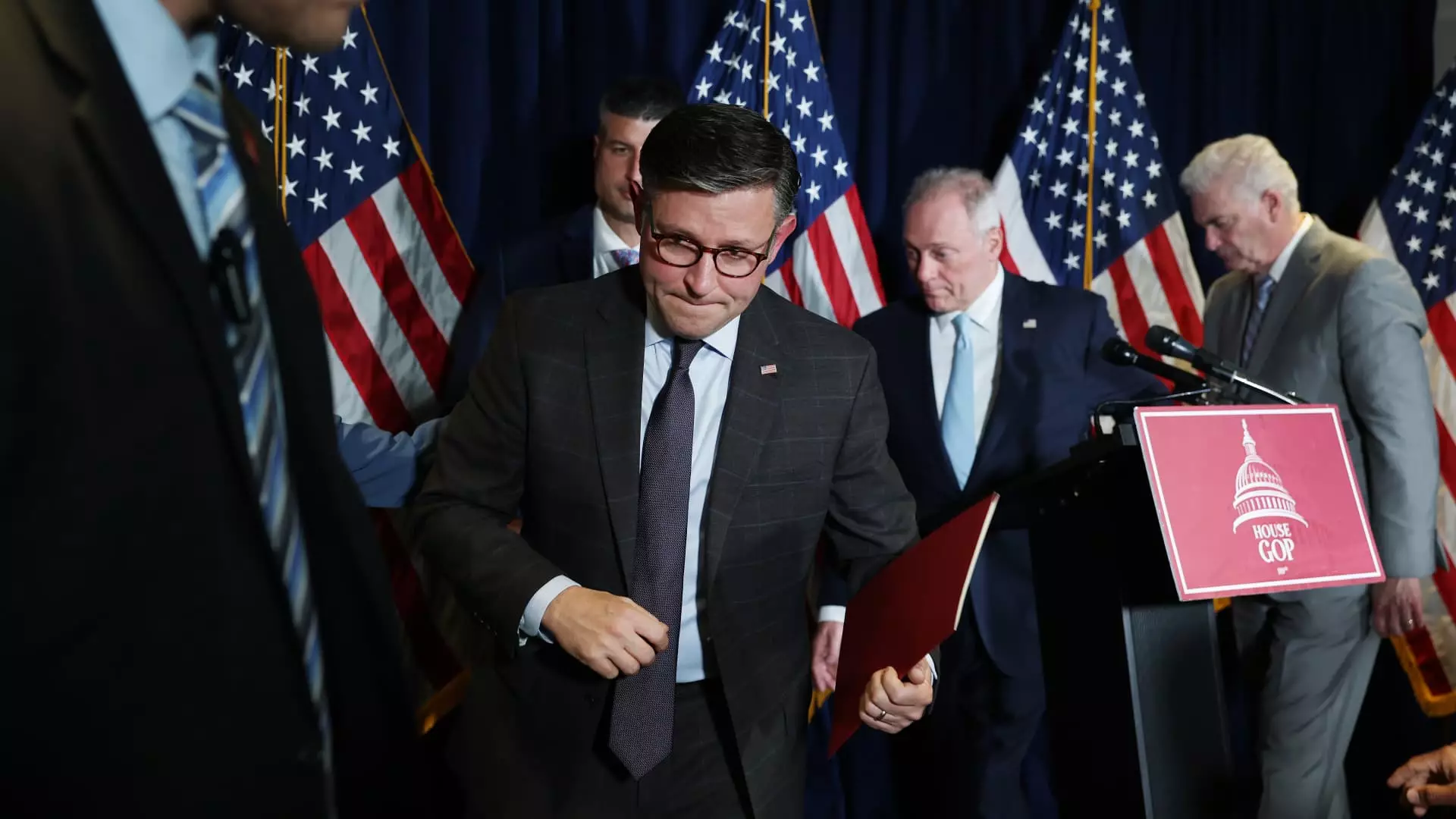In the current political landscape, the looming threat of a government shutdown exposes a deep-rooted failure of bipartisanship and effective leadership. House Speaker Mike Johnson’s accusations directed at Democrats highlight a stark reality: political brinkmanship has taken precedence over pragmatic governance. His characterization of Democrats’ demands as “partisan political preferences” underscores a troubling tendency among policymakers to prioritize ideological battles over the welfare of the nation. This attitude reveals a dangerous willingness to gamble with the stability of federal operations and, consequently, the livelihoods of millions. Such accusations simplify the complex negotiations into partisan blame-shifting, avoiding the acknowledgment that the core dispute—particularly over health insurance subsidies—is emblematic of broader ideological clashes rather than mere political theater.
The Democratic insistence on preserving ACA tax credits is rooted in tangible concerns about healthcare affordability, especially as inflation and economic instability persist. They argue that health subsidies provide critical relief to vulnerable populations, including rural Americans facing skyrocketing premiums—up to 90% higher without support. Conversely, Republicans view the delaying tactics with skepticism, framing the issue as an unnecessary political distraction that could jeopardize government functioning. But this binary framing dismisses the fact that both parties are entwined in a system that often ignores long-term impacts in favor of short-term gains. The fixation on blame during shutdowns tends to obscure the more painful truth: an inability of the political class to forge meaningful compromise, especially in a fragmented, polarized Congress.
The Economic and Social Toll of a Shutdown
The societal backlash from a shutdown would be swift and harsh. Public confidence in government institutions is fragile enough, and further erosion would have widespread implications. Essential services—such as health, safety, and security—would face disruptions, and critical agencies would operate at reduced capacity or close altogether. The economic repercussions are equally alarming. Economists warn that a shutdown could stifle consumer sentiment and slow growth at a moment when the labor market, already weakening at levels unseen since pre-pandemic times, desperately needs stability. The potential rise in healthcare costs alone underscores the human cost, with premiums expected to surge by up to 75% nationally and 90% in rural communities if tax credits are allowed to lapse. Such an outcome would deepen health disparities and undo years of progress in expanding healthcare access for millions.
The broader economic damage extends beyond immediate budget concerns. Consumer confidence is a fragile but vital driver of economic vitality, and a shutdown would likely induce fears of recession, layoffs, and decreased investment. Deutsche Bank’s analysts suggest that a shutdown under current conditions could produce a “more detrimental” economic shock than previous episodes—an ominous warning that the consequences extend far beyond political blame games and short-term negotiations. Effectively, the nation risks surrendering hard-won economic gains just when resilience is most needed.
Partisan Game or Civic Responsibility?
This confrontation exposes a fundamental question: are lawmakers fulfilling their duties or simply playing partisan games? From Johnson’s dismissive remarks about Democrats’ tactics to Schumer’s cautious planning to avoid another shutdown disaster, the focus remains fixated on political posturing rather than problem-solving. The complex interplay between Senate Democrats and House Republicans reveals a system increasingly driven by electoral calculus rather than genuine bipartisanship. Democrats, wary of public backlash and historical precedent, are cautious about repeating prior mistakes where perceived capitulation led to voter dissatisfaction. Meanwhile, Republicans seem eager to leverage the impasse to push ideological agendas, risking the stability of government functions.
This ongoing deadlock raises concerns about the moral responsibilities of elected officials. Policymakers are entrusted with ensuring continuity and stability, yet their actions often reflect a prioritization of ideological victory over legislative pragmatism. In a functioning democracy, the ability to compromise—recognizing that not every issue will be perfectly aligned with one’s worldview—is paramount. The current standoff undermines this principle, setting a dangerous precedent for future governance where polarization deepens and bipartisan trust erodes.
As the nation stands on the brink of a potentially avoidable crisis, it’s clear that this struggle isn’t simply about funding or policy specifics. It is a profound reflection of a political system prone to hostilities rather than harmonies. The true cost of this failure isn’t measured solely in dollars or delays but in the legitimacy of democratic institutions and the well-being of the people they serve. If elected officials continue to prioritize ideological battles over the common good, the fallout will be felt long after the shutdown is resolved—or not.

